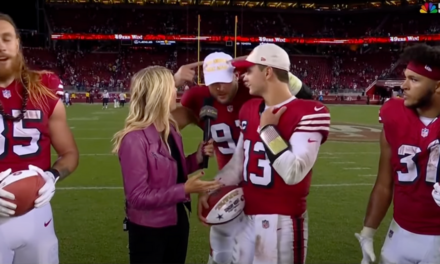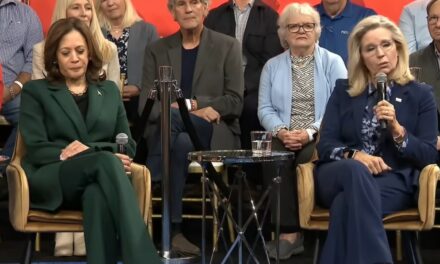We support our Publishers and Content Creators. You can view this story on their website by CLICKING HERE.
Although former Mexican President Andrés Manuel López Obrador left office in October, his policies continue to harm the United States. The consequences of the unimpeded flow of drug and human trafficking across our border during his tenure will linger for years.
His government’s lawsuit pending before the U.S. Supreme Court, Smith & Wesson Brands, Inc. v. Estados Unidos Mexicanos, could also upend our tort law system and hurt American businesses. It’s an attempt to blame American gun manufacturers and distributors for the damage caused by Mexican criminals in Mexico.
Mexico’s lawsuit alleges that several firearms companies are “deliberate and willing participants [in criminal operations], reaping profits from the criminal market they knowingly supply.” Mexico asked for $10 billion in damages due to what they call “willfully blind, standardless distribution practices” that lead to the small percentage (2.2 percent) of American guns that end up smuggled across the southern border and used by the cartels.
Although several defendants have already been dismissed from the case on jurisdictional grounds, the legal theories underlying the case against the remaining defendants could disrupt multiple American industries with more tort claims. Mexico would expand proximate causation to broad foreseeability. It would also make a business’s knowledge that its products are being misused by third parties the justification for a tort claim of “aiding and abetting” those bad actors.
Making the case even more untenable are the explicit protections for American firearms manufacturers and dealers within the Protection of Lawful Commerce in Arms Act (PLCAA) of 2005. The law bars lawsuits against firearms companies stemming from the criminal misuse of their products. This law was passed in the wake of lawsuits brought by local governments in the United States that attempted to hold gun manufacturers liable for gang violence.
Even interpreted as a political vehicle to express frustration with the American gun industry, this case is part of former President López Obrador’s extensive record of bad-faith engagement with U.S.–Mexico border politics. Our southern border has long been a site of northbound human and drug trafficking, along with southbound gun and currency trafficking.
López Obrador, however, spent the six years of his term scorning cross-national efforts and shirking Mexico’s role in stopping cartels from exporting fentanyl. He often expressed disdain for U.S. government requests to increase action against the cartels, telling U.S. Homeland Security Advisor Elizabeth Sherwood-Randall, “Here, we do not produce fentanyl, and we do not have consumption of fentanyl.” While this is untrue on both counts, it indicates the approach his administration took to the illicit opioid crisis, suggesting Americans fix it by addressing “their problem of social decay.”
The hypocrisy of suggesting Americans bear full responsibility for our opioid epidemic while gun manufacturers owe Mexico billions of dollars due to Mexico’s gun violence epidemic is clear. But it is part of an odd pattern of public statements and actions from López Obrador that seemed to run interference for the cartels.
López Obrador made six official visits as president to Joaquín “El Chapo” Guzmán’s rural hometown of Badiraguato. During one of these, he met and shook hands with Guzmán’s mother. That led to an onslaught of criticism from Mexican opposition figures. He followed this with baffling claims earlier this year that cartel members “respect the citizenry” of Mexico.
This does not mesh with the horrific picture of cartel violence against civilians Mexico’s lawsuit cites. And the U.S. investigations suggesting cartels funneled approximately $2 million to López Obrador’s first campaign for president back in 2006 make the situation and case more suspect.
Why did López Obrador launch this case against American gun manufacturers near the end of his term as president? Perhaps it serves as cover for his legacy of failure in domestic public safety.
In the face of brutal violence by the cartels, he announced his desire to disband the country’s military and declare Mexico “a pacifist country.” This ideology was at the center of his “hugs, not gunshots” campaign to go after the alleged root causes of organized crime, like poverty and unemployment.
The result? López Obrador likely presided over one of the deadliest periods in Mexico’s modern democratic history, with homicide totals far surpassing each of his recent predecessors and more than tripling since just three administrations prior.
The United States and Mexico both stand to benefit from cooperating against gun and drug trafficking efforts. But this lawsuit is just a token gesture to cover Mexico’s failure to protect its citizens. Whatever the motivation for Mexico’s case, it is exactly the type of lawsuit the PLCAA was explicitly passed to prevent, and the Supreme Court should dismiss it.
Matthew Forys is the executive vice president of Landmark Legal Foundation.

 Conservative
Conservative  Search
Search Trending
Trending Current News
Current News 





